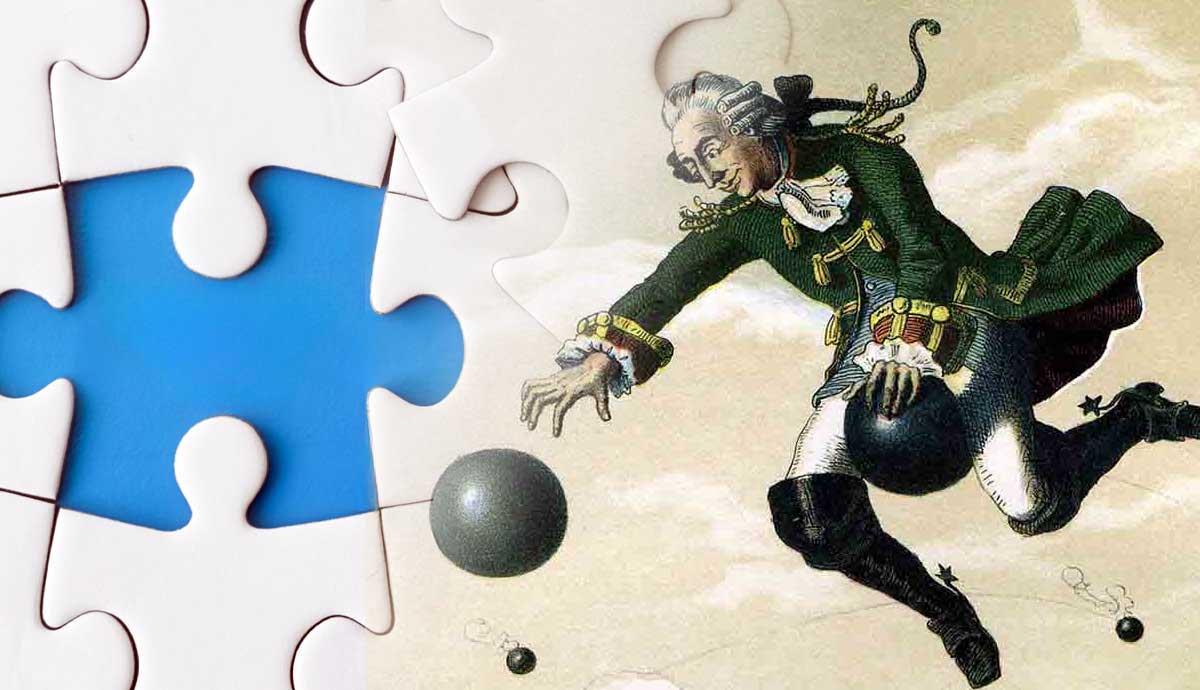
The structures of rationality have long served as the pillars upon which our bodies of knowledge stand in all fields of inquiry. When assessing different arguments, we tend to believe those that sound most logical. Logic has such a convincing power that we accept its tokens almost blindly, but are we mistaken to rely on it with that much trust?
What Is Logic?

Logic is a relational structure through which we organize information in order to arrive at certain conclusions. When we say that something is logical, we mean that it is validly derived from a specific organization of data. Logic is a way of making sense of the influx of information we receive. It is an organizational principle, irrespective of the content that it organizes. Formal logic is the branch of philosophy dealing with the different logical structures an argument can assume and the principles that determine its validity.
The Anatomy of Logical Arguments

Logical arguments structure a set of premises in a certain way to derive a certain conclusion. Premises are statements that purport a certain truth, otherwise known as knowledge claims. Formal logic is concerned with how to organize premises rather than with the premises themselves. For example, if you use the premises (1) Human beings are pink dinosaurs in disguise and (2) Socrates is a human being, you would necessarily conclude using the logical rule of universal instantiation that Socrates is a pink dinosaur in disguise. Despite how ridiculous the argument may sound; it is logically valid because it correctly follows a structure in formal logic.
When we dig deeper into the different rules of logic, we find that they are like empty mathematical equations: x + y = z. ‘X’ and ‘Y’ could consist of the most absurd premises, yet ‘Z’, the conclusion, would still be considered logically valid. If an argument can be logically valid irrespectively of the truth of its premises, how can we justify any knowledge claim? How can the premises themselves be validated?
The Munchhausen Trilemma

The unreliability of logic to arrive at true knowledge claims is not news. German philosopher Hans Albert employed a comic story of the fictional character Baron Munchhausen to illustrate this epistemological dilemma. As the story goes, Munchhausen was on one of his fantastical adventures when he found himself stuck in a mire with his horse. The mire kept pulling them deeper and deeper into the mud, when he came up with a wonderful solution. Munchhausen managed to carry himself and his horse out of the mud by pulling his own hair. Albert believed this whimsical tale to be the perfect description of the state of our striving for justifiable knowledge claims – absurd and unrealistic.

Using the name of the tale’s protagonist, Albert coined the term ‘The Munchhausen Trilemma’ to delineate the impossibility of providing proof for any truth without relying on assumptions, even in the rigorous fields of logic and mathematics. The trilemma delineates three different ways that a knowledge claim can be justified, albeit each equally problematic.
Infinite Regress

Inspired by philosopher Karl Popper, Albert argued that we can only justify a knowledge claim through infinite regress, circular reasoning, or dogmatism. Infinite regress, as the term suggests, is an argument whose justification requires further justifications, ad infinitum. This is known as the problem of criterion in the field of epistemology, which addresses the dilemma of finding a starting point in the chain of knowledge justifications. Using the previous pink dinosaur argument as an example, we can see how attempting to justify each premise would require further justification. For example, to justify the claim “Socrates is a human being” we would need to define what a human being is and evaluate whether Socrates meets this criterion. Suppose we relied on an empirical science like biology for our definition. In that case, we may then have to justify the reliability of empiricism, which in turn would require us to justify the reliability of sense perception, and so on ad infinitum.
Dogmatism

One way to avoid infinite regress, is to choose a starting point for the chain of justification to serve as the foundation of further knowledge claims. A famous example of foundationalism is Réne Descartes ‘cogito ergo sum’, I think therefore I am, which is a knowledge claim that serves as the starting point of the rest of his philosophy. However, according to Albert, foundationalism is a form of dogmatism towards a mere assumption. Essentially, it constitutes a haphazard suspension of the principle of sufficient reason, which purports that everything must have a cause and explanation. Even if the foundation appeals to common sense or authoritarian resources, it still remains a mere assumption. Following our pink dinosaur example, dogmatism would mean ending our chain of justification at the biological argument despite the need for further evidence.
Circular Reasoning

The third problematic way of justifying a knowledge claim according to the Munchhausen trilemma is through circular reasoning. Circular reasoning is when one of the premises of an argument presupposes the conclusion. Although it may have the impression of soundly justifying its claims, arguments using circular reasoning commit a logical fallacy. Indeed, they are like Munchhausen trying to pull himself out of the mire using his own hair. Consider the following premise in an argument about the reliability of sense perception: “Our senses provide accurate information about the world around us”. The premise, in purporting to justify the conclusion, merely restates it. Circular reasoning renders the justification of knowledge claims ultimately empty and useless.
On Belief, Truth, and Uncertainty

If logic is ultimately impotent as a reliable source of justifying knowledge, on what basis should we believe the truth about anything? Like many critical philosophers, Hans Albert argued that we must accept our inability to achieve certainty about any knowledge claims. Accepting uncertainty doesn’t mean that we should forgo our search for knowledge, but simply means that we should always keep an open mind regarding what we believe to be truthful. Beliefs, in the ocean of uncertainty, are but feathers in a storm. Realizing uncertainty allows us the flexibility of letting them go when we need to, and protects us from the perils of dogmatic thought.









